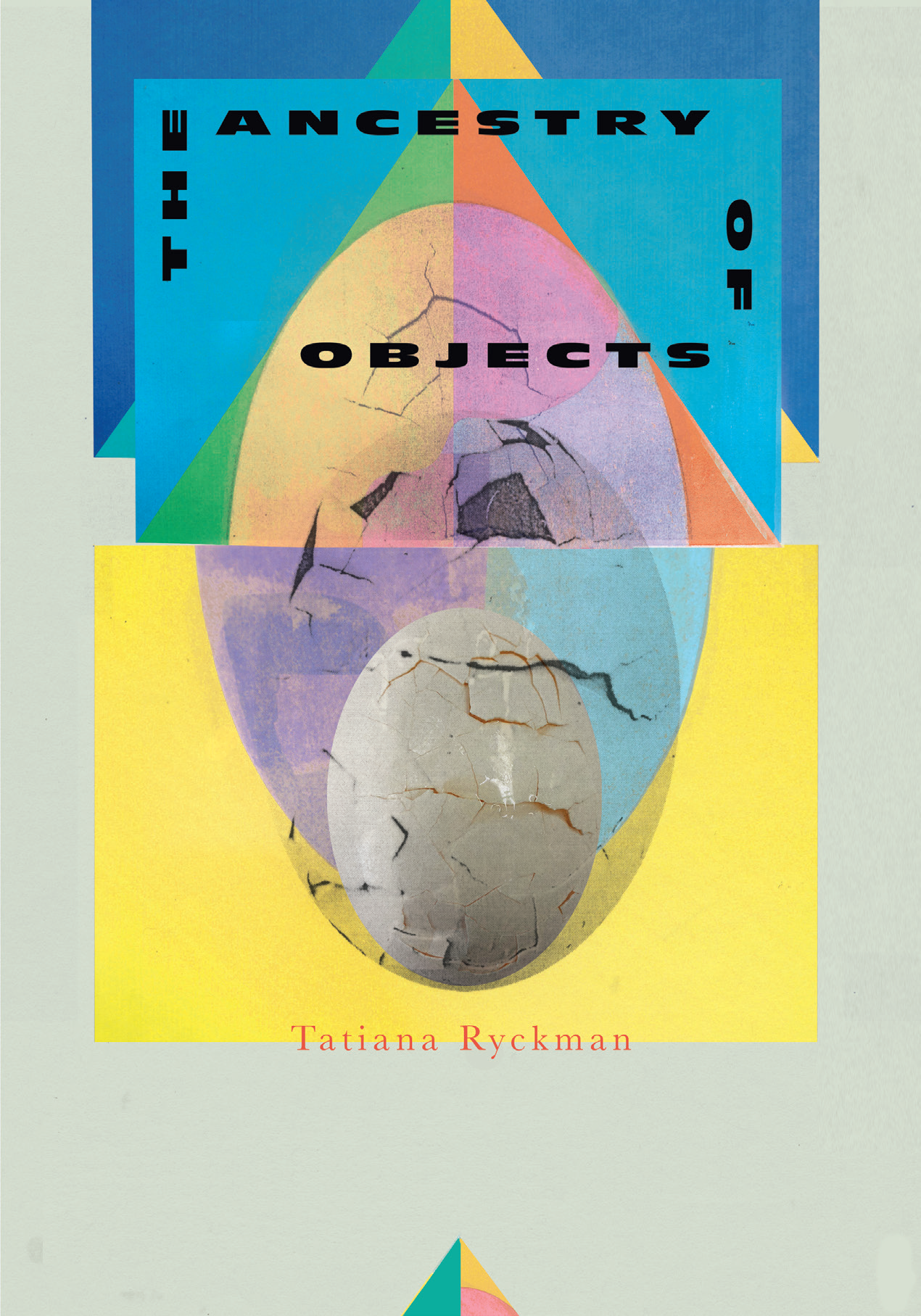The Ancestry of ObjEcts
“Readers of lyrical, genre-bending fiction will be spellbound.” ―Publishers Weekly
A young woman contemplates the end of her life as she’s known it as tragedy after tragedy accumulates around her, threaded with her relationship to desire, consent, and control.
Reviews & Interviews:
Kirkus Reviews
Publisher’s Weekly
Full Stop
Largehearted Boy Playlist
Advance Praise
Tatiana Ryckman's second novel, The Ancestry of Objects, takes us deep into the labyrinth of eros and its manias. There is adultery, there is loneliness and abandonment, there is shame and longing, a family of ghosts, and there is a woman learning how to live and finally, how to love herself.
—Micheline Aharonian Marcom, author of The New American
'It is us—our fear and our shame and our pride—and no one else that haunts us,' says the narrator (or narrators) of this harrowing, startling novel, told in the first person plural. From the moment I started reading, I felt the presence of T.R. Ryckman's unmistakable genius. You could compare it to Ben Marcus, Alexandra Kleeman, Brian Evanson or Carmen Machado, but really The Ancestry of Objects is in a category of its own.
—Jess Row, author of Your Face in Mine
I’ve always loved Ryckman’s fiction, but nothing in the idiosyncratic originality of her short stories prepared me for her stunning new work, The Ancestry of Objects, with its dark eroticism, its plunge into depths of loneliness, and its quest for paradoxical liberation. In reading this powerful and disturbing short novel, I found myself splitting in two: into the reader who could not put these pages down, and the reader who had to, in order to regain her equilibrium and catch her throttled breath.
—Diane Lefer, author of Confessions of a Carnivore
Ryckman’s The Ancestry of Objects accomplishes a difficult and compelling tension with lyrical prose that ropes readers into a nuanced depiction of the pleasure and pain of human relationships. She renders the figures of her fragmented novel with a stark tenderness, reflecting the beauty and unattractiveness of desire. There are no villains, no heroes, just complications between people whose flaws will draw readers to recognize themselves and our shared yearning to be known.
—Donald Quist, author of Harbors and For Other Ghosts
